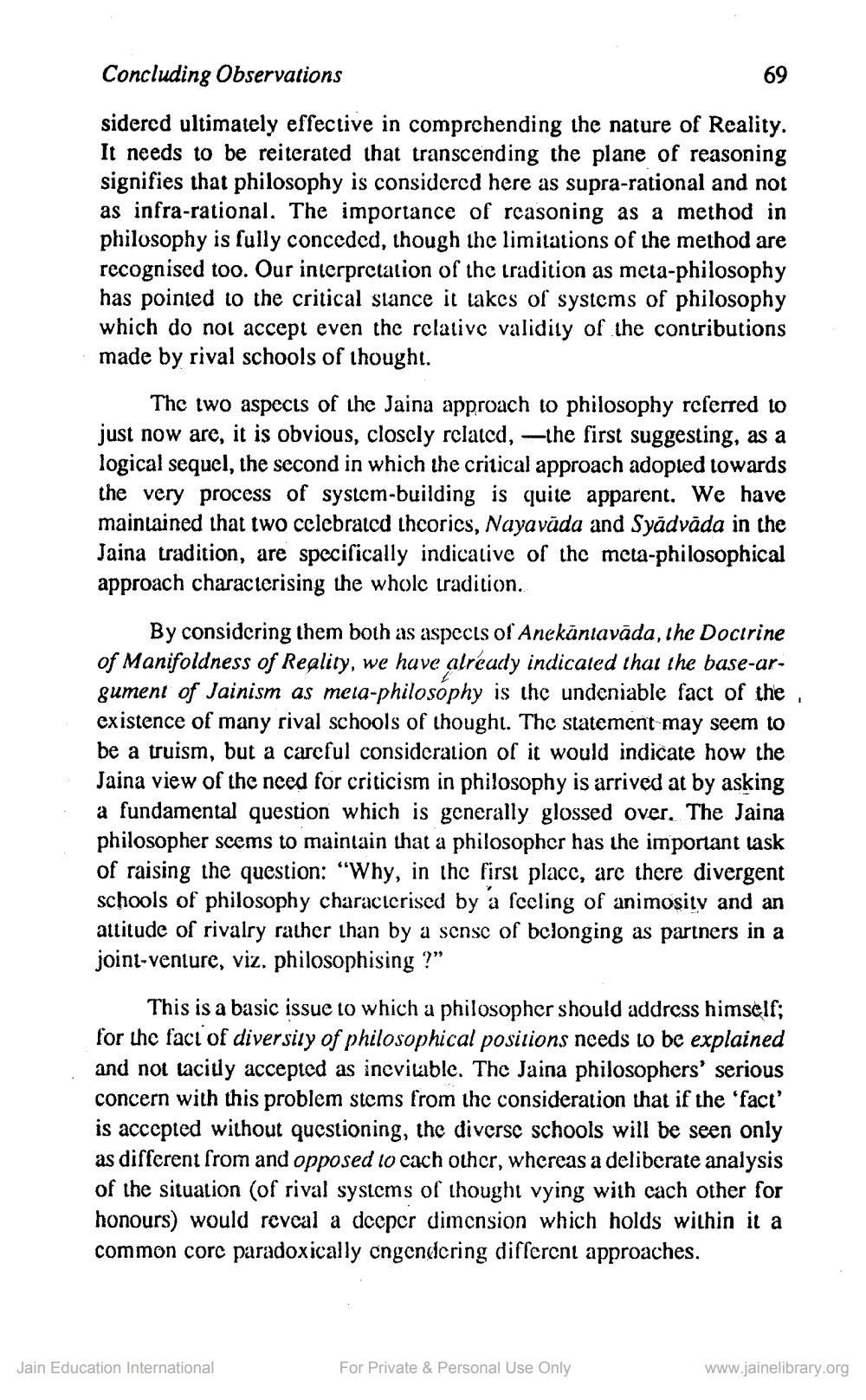________________
Concluding Observations
sidered ultimately effective in comprchending the nature of Reality. It needs to be reiterated that transcending the plane of reasoning signifies that philosophy is considered here as supra-rational and not as infra-rational. The importance of reasoning as a method in philosophy is fully conccdcd, though the limitations of the method are recognised too. Our interpretation of the tradition as meta-philosophy has pointed to the critical stance it lakcs of systems of philosophy which do not accept even the relative validity of the contributions made by rival schools of thought.
The two aspects of the Jaina approach to philosophy referred to just now are, it is obvious, closely related, -the first suggesting, as a logical sequel, the second in which the critical approach adopted towards the very process of system-building is quite apparent. We have maintained that two cclebratcd theorics, Nayavāda and Syādvāda in the Jaina tradition, are specifically indicative of the meta-philosophical approach characterising the whole tradition.
By considering them both as aspects of Anekānlavāda, the Doctrine of Manifoldness of Reality, we have already indicated that the base-argument of Jainism as mela-philosophy is thc undeniable fact of the existence of many rival schools of thought. The statement may seem to be a truism, but a careful consideration of it would indicate how the Jaina view of the need for criticism in philosophy is arrived at by asking a fundamental question which is generally glossed over. The Jaina philosopher scems to maintain that a philosopher has the important task of raising the question: "Why, in the first place, are there divergent schools of philosophy characterised by a sceling of animosity and an attitude of rivalry rather than by a scnsc of belonging as partners in a joint-venture, viz. philosophising ?”
This is a basic issue to which a philosopher should address himself; for the fact of diversity of philosophical positions needs to be explained and not tacitly accepted as incvitable. The Jaina philosophers' serious concern with this problem stems from the consideration that if the 'fact' is accepted without questioning, the diverse schools will be seen only as different from and opposed to cach other, whereas a deliberate analysis of the situation (of rival systems of thought vying with cach other for honours) would reveal a dceper dimension which holds within it a common core paradoxically cngendering different approaches.
Jain Education International
For Private & Personal Use Only
www.jainelibrary.org




